After 13 sanctions packages failed to curb the Russian economy , the US, EU and several other Western countries responded by turning to extraterritorial jurisdictions.
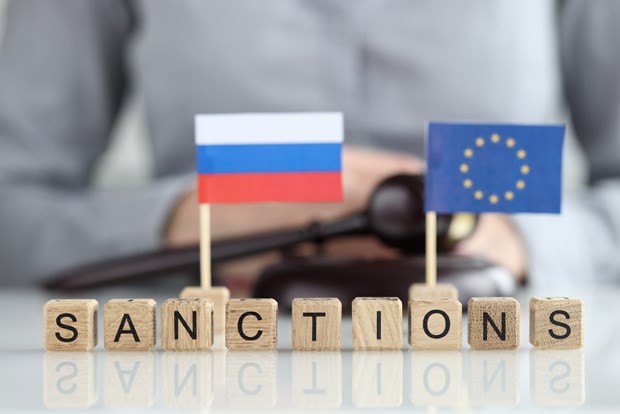 |
| The 14th package of sanctions against Russia, which will come into effect on June 25, 2024, is designed by the EU to increase the risk of liability for companies that have avoided previous rounds of sanctions. (Source: Export.org.uk) |
The European Union (EU) is looking to counter Russia's attempts to circumvent sanctions by applying them to non-EU businesses in countries outside the bloc's jurisdiction.
The 14th package of sanctions against Russia, which will come into effect on June 25, 2024, is designed to increase the risk of liability for companies that have avoided previous rounds of sanctions. By the end of the year, the measures will apply to EU companies, banks and investors that have direct or indirect stakes in subsidiaries, joint ventures or investment portfolios in non-EU countries that maintain business ties with Russia.
The EU has traditionally avoided including non-territoriality in the design of international sanctions programs, including the previous 13 rounds of sanctions against Russia. In fact, the bloc has opposed the implementation of extraterritorial sanctions, insisting that sanctions should only be applied when there is a direct link to the EU.
The bloc has also objected when other jurisdictions, primarily the US, impose extraterritorial measures and secondary sanctions. The union has even banned EU companies from complying with sanctions when they face measures abroad in US sanctions against Cuba, Iran and Libya.
Washington, by contrast, has long used extraterritorial powers in its sanctions policy. The US Treasury Department ’s Office of Foreign Assets Control has imposed “secondary sanctions.” In September 2022, the department signaled its intention to significantly expand the use of extraterritorial powers in enforcing sanctions against Russia, and it has done so several times.
EU learns from the US
The EU has recently begun to follow the US lead on this issue. Since 2023, the 27-member bloc has increasingly targeted third countries to counter Russian sanctions evasion strategies.
For example, the EU introduced a provision in the 8th sanctions package to blacklist individuals of all nationalities who facilitated the evasion of sanctions, while the 11th package went further, establishing a range of new powers to add third-country entities to the sanctions list.
While the coalition now sees targeting third-country operators as crucial to anti-circumvention efforts, such measures have resulted in punishing those who are not considered illegal in their domestic jurisdictions.
Accept controversial measures
The latest EU sanctions package against Russia focuses on tackling sanctions circumvention in third countries and strengthening enforcement. EU parent companies are now obliged to “make every effort” to ensure that subsidiaries they do not own or control do not engage in sanctions-related transactions.
Accordingly, EU businesses transferring industrial know-how to produce goods for the battlefield to third-country trading partners will have to include contractual provisions to ensure that such know-how will not be used for goods diverted to Russia.
This “no Russia” clause will come into force on 26 December 2024 and will also apply where the transfer of intellectual property rights relates to goods that are identified as having a civil- military use or simply as advanced technology. The European Commission will decide whether non-EU subsidiaries should be covered by the “no Russia” clause.
Punish the financial system
The new EU sanctions ban the use of the System for the Transfer of Financial Messages (SPFS), an electronic platform developed by the Central Bank of Russia. SPFS was developed as an alternative to SWIFT (a financial system that allows money transfers between banks and financial institutions globally), helping to strengthen Russia's financial sovereignty and reduce its dependence on the West. As of the third quarter of 2023, about 300 Russian banks and 23 foreign banks from several countries, including Kazakhstan and Switzerland, were connected to the SPFS platform.
EU entities operating outside Russia are prohibited from connecting to that system or any equivalent system effective from 25 June 2024. These entities are also prohibited from conducting transactions with listed entities using SPFS outside Russia.
Energy and trade sanctions
The 14th round of EU sanctions bans the re-export of Russian liquefied natural gas (LNG) within the EU. The ban extends to technical and financial services that facilitate the transfer of LNG to third countries. The aim is to reduce Moscow's revenue from gas sales.
The EU has expanded its military end-user list to include 61 new entities (33 in third countries and 28 in Russia) allegedly involved in circumventing trade restrictions or procuring sensitive items and supporting the Kremlin’s military activities.
Southern Hemisphere Response
After initial sanctions failed to stifle the Russian economy, the US, EU and several other Western countries responded by turning to extraterritorial jurisdictions, which prohibit third countries from using their respective currencies in cross-border transactions.
Meanwhile, China, India, Brazil, South Africa and other Southern Hemisphere countries continue to trade with Russia. Unexpectedly, many countries have increased bilateral trade with Moscow and expanded cooperation in many economic areas, including finance, energy and trade in strategic manufactured goods and high technology.
Most developing countries believe that the Russia-Ukraine conflict should be contained through compromise and ceasefire rather than unilateral sanctions and arms supplies to Kiev. In 2022, Indian External Affairs Minister Subrahmanyam Jaishankar echoed their views when he advised that “Europe must get rid of the mindset that Europe’s problems are the world’s problems, but the world’s problems are not Europe’s problems.”
The freezing of Russian assets has been hailed in the West as a proportionate and unified response to Russia's military campaign. However, it sends a worrying message to the rest of the world.
Southern governments are now wondering whether it is wise to hold their foreign assets in euros and dollars, as they may face similar actions in the future. The freezes have undermined the reputation of the euro and the greenback as safe havens, with implications for non-Western governments managing their reserve assets.
In a striking example of currency anxiety, Algeria has inserted a clause into its 2023 deal to sell gas to European partners: Algeria reserves the right to change the currency of transactions in half a year.
Similar concerns can be seen across the global South, where countries increasingly use their own currencies, China’s yuan or other alternative financial instruments in trade, gradually eroding the global relevance of leading Western currencies.
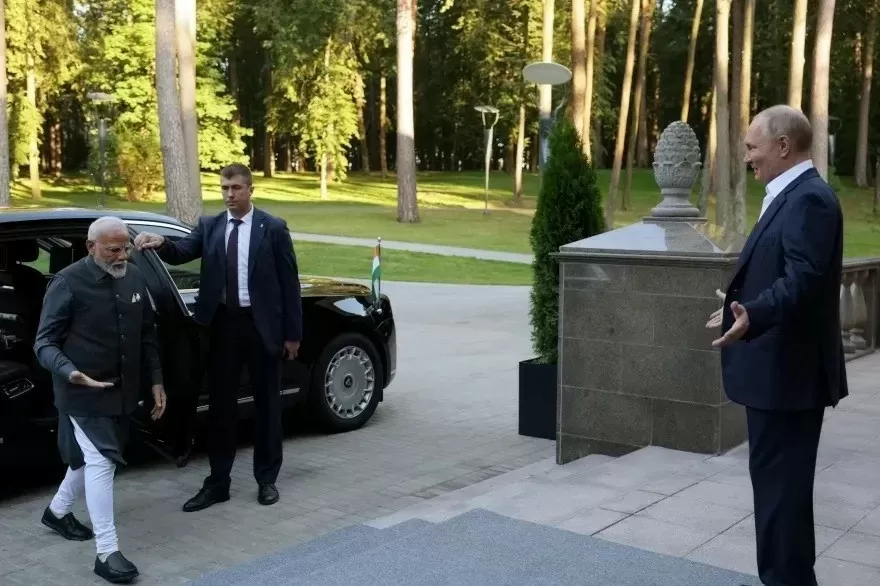 |
| Russian President Vladimir Putin welcomes Indian Prime Minister Narendra Modi at his residence in Novo-Ogarevo, a suburb of Moscow, Russia, on July 8. (Source: Sputnik) |
Predict 2 scenarios
Most likely scenario: EU doubles extraterritorial sanctions
In the latest developments, the EU is about to apply secondary sanctions against third countries accused of undermining the union's sanctions regime.
While these measures are at odds with the EU’s traditional approach of avoiding excessive extraterritorial interference, sanctions manipulation and evasion by a growing number of non-Western countries appears to have convinced the bloc that effective enforcement can only be achieved by targeting legal entities around the world.
As the Russian economy continues to expand bilateral trade in strategic sectors such as energy, mainly through non-Western partners – China, India, Brazil and Türkiye – the question is: how far will the EU go in sanctioning entities in these countries? Their targets are likely to include large state-owned enterprises and private corporations that are important for growth and social stability in their countries.
Indian Prime Minister Narendra Modi’s visit to Moscow in July 2024, his first to Russia since the Ukraine conflict broke out, sent an important signal. New Delhi’s diplomatic move showed how complicated the task of enforcing EU sanctions would be. Many southern hemisphere countries rely heavily on Moscow for energy and weapons.
Less likely scenario: EU will ease extraterritorial sanctions
The EU has long maintained that extraterritorial sanctions violate the territorial integrity and sovereignty of the targeted states. Ironically, the union is now acting in defiance of these very principles.
From an international law perspective, the EU may therefore revert to its previous legal position in the future. This could even include the possibility of using an instrument similar to the 1996 law, known as the Blocking Statute, which the EU adopted to protect EU citizens and legal entities from the extraterritorial effects of US sanctions against Cuba, Libya and Iran.
The EU’s renunciation of extraterritoriality may stem from practical considerations. The Union does not have the financial and economic clout of the US to compel non-EU entities to comply with its policies. The US enforces sanctions using the US dollar as a powerful economic tool, which the euro cannot replicate in terms of deterrence.
Europeans therefore need to develop additional economic tools to create an effective “bargaining chip.” In the financial sphere, their institutions lack the power and global reach of their American counterparts.
However, the main reason the EU might retreat from extraterritorial sanctions is the prospect of retaliation from affected countries. While the bloc might be able to successfully apply extraterritorial measures against smaller economies, such as Armenia or even Kazakhstan, doing the same against larger actors such as China, India or Türkiye would be next to impossible.
China has warned the EU that if it is sanctioned over the issue, Beijing will respond with counter-sanctions. In such a case, many of the bloc's member states with significant economic interests in the Asian powerhouse, including Germany and France, would strongly oppose extraterritorial sanctions.
Source: https://baoquocte.vn/goi-trung-phat-thu-14-eu-theo-chan-my-ap-dieu-khoan-khong-nga-van-chua-co-con-bai-mac-ca-moscow-thanh-cong-voi-loi-di-rieng-282555.html



![[Photo] Binh Trieu 1 Bridge has been completed, raised by 1.1m, and will open to traffic at the end of November.](https://vphoto.vietnam.vn/thumb/1200x675/vietnam/resource/IMAGE/2025/10/2/a6549e2a3b5848a1ba76a1ded6141fae)




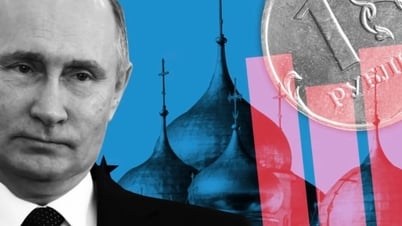

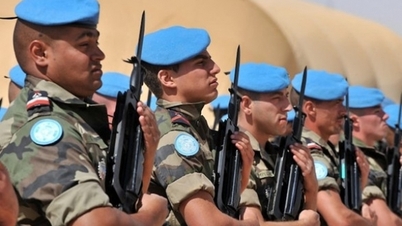
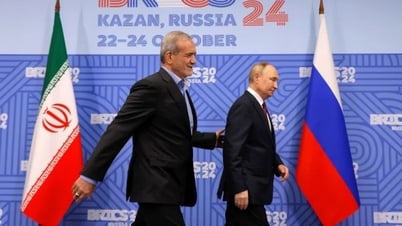
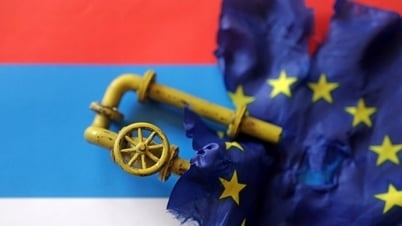


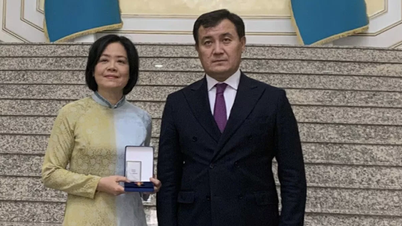

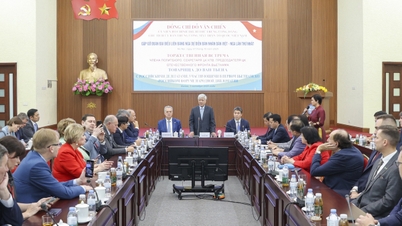

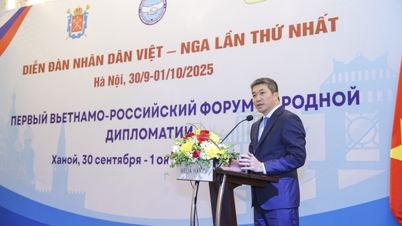
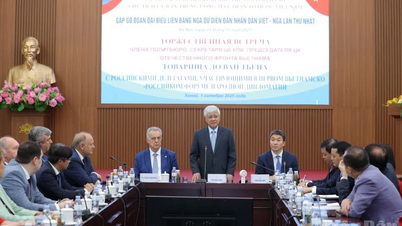


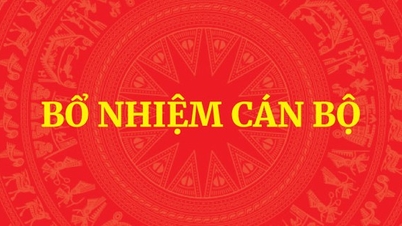




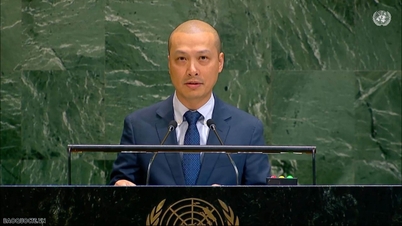

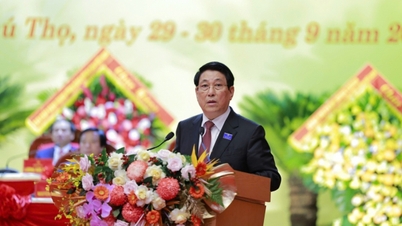

















































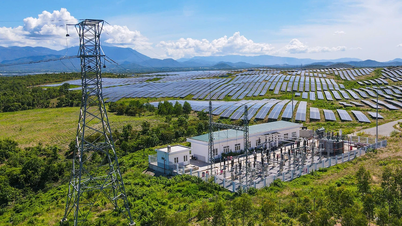

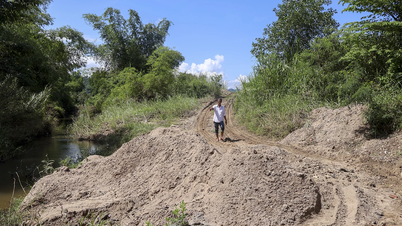




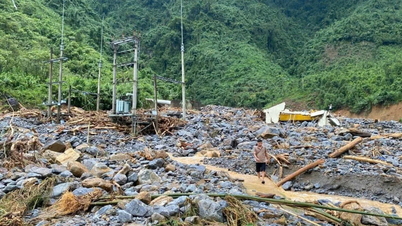
















Comment (0)